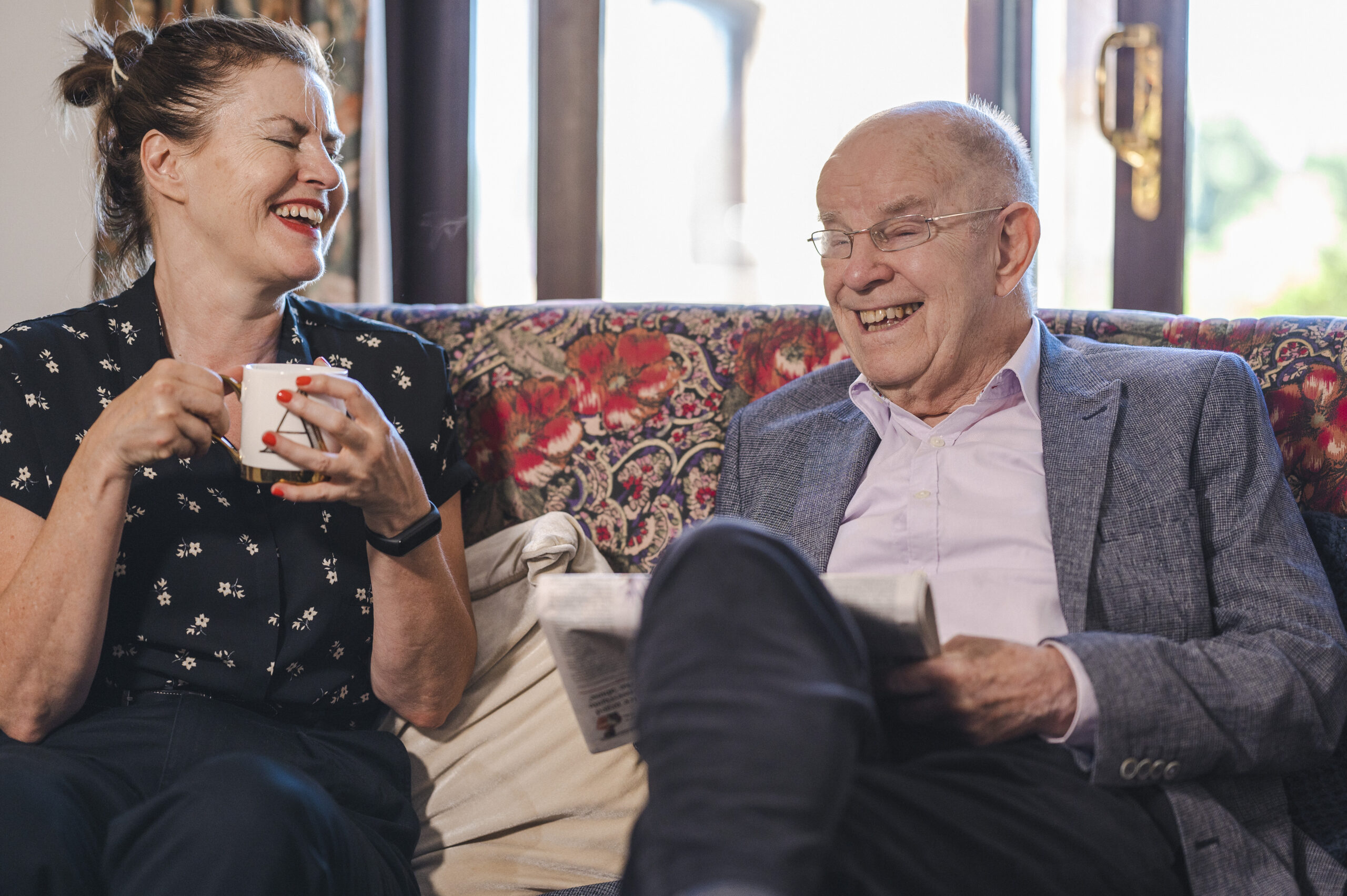Why We’re Happier When We’ve Got Friends
10 min read

According to Aristotle, the famous Greek philosopher, ‘Man is by nature a social animal.’ He regarded friendship as an essential constituent of both a good society and a good life. Sitting at the heart of a good society because of its contribution to civic democracy. And at the heart of a good life because it nurtured wisdom and happiness.
Fast forward to the modern day, and evolutionary biologists believe primates developed large brains to both manage their social relationships as well as navigate a hostile world. Using their increased cognitive ability to develop social skills and maintain positive relationships within the group to improve shared chances of survival in the face of ever-present predators.
Deploying greater social awareness helped us to cooperate with others. Developing language and culture helped us foster closer social bonds. Ultimately, civilisation developed because of our capacity to live and work together in increasingly large social groups. Identifying opportunities and facing challenges together to create the complex societies that developed in Mesopotamia, Egypt and elsewhere in early human history.
Walk beside me and be my friend
But it’s not just about improved cooperation. Numerous medical studies published over the years have shown that effective friendships offer multiple benefits to both mental and physical health.
Friendships can help keep your mind sharp. Support you through tough times. And help you live longer as you manage stress better.
They improve mental health by providing a strong sense of companionship, mitigating feelings of loneliness, and boosting self-esteem.
Friendships also reduce the risk of contracting many medical conditions, reducing the risk of high blood pressure, cardiovascular disease, various cancers and an unhealthy body mass index (BMI).
Put simply, we live longer as friendships make us happier. There’s even a neurological basis for this: regular social interactions release feel good chemicals in the brain. Which means we do it over and over again to get that dopamine rush!
The limits of technology
On the face of it, our increasingly connected technology-based world appears to offer greater opportunities to interact with people on a social level. In reality, for all its benefits at a general economic level, nothing could be further from the truth.
As an article in the Independent reported, ‘our reliance on social media can have a detrimental effect on our mental health, with the average Briton checking their phone as much as 28 times a day.’ While many people benefit from the increased social interaction offered by social media platforms, using them too frequently can lead to a rise in unhappiness, social isolation and anxiety. It can also generate FOMO, affect our sleep and impact on our ability to concentrate.
The renowned Italian author Umberto Eco sums it up rather neatly in a fascinating piece in CubaDebate: ‘The Internet is one thing and its opposite. It could remedy the loneliness of many, but it turns out that it has multiplied it. The internet has allowed many to work from home, and that has increased their isolation. And it generates its own remedies to eliminate that isolation, Twitter, Facebook, which end up increasing it…’ (Translated from the Spanish original.)
Worse still, recent research suggests that using smartphones during face-to-face social interactions (sadly, all too common!) decreases enjoyment in the company of others, and is linked to greater boredom and worse overall mood.
Ultimately, using the internet is no substitute for genuine, face-to-face social interaction with a range of good friends. By creating multiple, often superficial, online connections, social media undermines your ability to engage with those people in real life who can offer meaningful, fulfilling relationships.
The loneliness of crowds
But we know it can be difficult to make or maintain friends these days, especially in the city. We live in a time when people move around a lot as they go through education, change jobs or move home. All of which makes it hard to develop and sustain relationships.
However, it doesn’t have to be that way.
BuddyHub exists to help you make the first move and nourish your inner circle. And is being developed with the assistance of evolutionary anthropologist Professor Robin Dunbar. Dunbar is the world’s leading expert on the important role played by friendship in the development of human society and its significance for our health and happiness.
Our innovative friendship model offers you the opportunity to boost your social networks through face-to-face interactions with people who share your interests, beliefs and outlook on the world.
It allows you to harness the emotional power provided by deep connection with others, unlocking the potential for meaningful friendships that go beyond superficial interactions.
This is reflected in our Friendship Wheels which provide the opportunity to be quickly matched with other members. Using Dunbar’s concept of the Seven Pillars of Friendship to bring people together based on the cultural factors they have in common (including hobbies, moral and political values, and sense of humour).
And is seen also in our Friendship Clubs, which provide multiple opportunities to share skills and interests with one another, open your eyes to new experiences and try something different.
We provide a weekly ‘Community Connect’ session via our online platform, where you can chat with BuddyHub’s Community Manager and make your voice heard.
In addition, we will also be hosting monthly events for new and existing members based around relationship skills-building and accelerated bonding opportunities.
In a nutshell, BuddyHub gives you the opportunity to slow down, reflect on what’s important in life and incorporate a greater sense of purpose and belonging in your social life.
Friendship is a fruit which ripens slowly
But why choose us when there are a number of friendship agencies out there which offer introduction services. Along with online friendship apps which appear to provide a useful way to meet new people. Firstly, the agencies tend to be restricted by age, professional status or geography. While the apps are unlikely to be able to facilitate face-to-face connections. All are driven by commercial imperatives.
Of course, you can always go down the pub. Get an allotment. Or buy a dog and meet fellow dog-owners when out walking it.
But these options simply don’t work for everyone. So, what can BuddyHub offer you which sets us apart from others?
For starters, we’re a Community Interest Company, which means we operate for the public benefit.
As you might expect, we embrace diversity, welcoming members from different backgrounds, ages, sexes/genders and races. We welcome people with a range of values, hobbies and interests. All united by their belief in the power of community and their wish to broaden their friendship circles.
We are passionate about intergenerational connection and the power this has to both restore something we’ve lost in society as communities have fragmented and shift our perspectives in more fruitful directions, promoting positive emotions and human flourishing.
We are proud of the way BuddyHub provides a safe space to engage with other people, experience a sense of belonging and feel both seen and heard (in contrast to the noise and the divisiveness of so much social media).
Finally, we are interested in the depth of connection that can be made between people in the right circumstances and the powerful ability we retain as human beings to make real, long-lasting friendships.
Your new friends are waiting for you
With the fragmentation of society and disappearance of older forms of community, the decline of religion in a more secular western world, and a more individualised working experience, meeting new people can be difficult.
We can help you make new friends, feel good about both yourself and the world around you, and help you get on with your life in the way you want to.
If you would like to find out more, why not take a look at our website, email us with any questions you might have at hello@buddyhub.co.uk or come along to one of our upcoming events.
